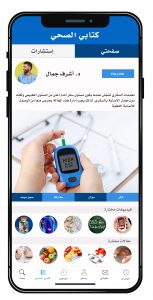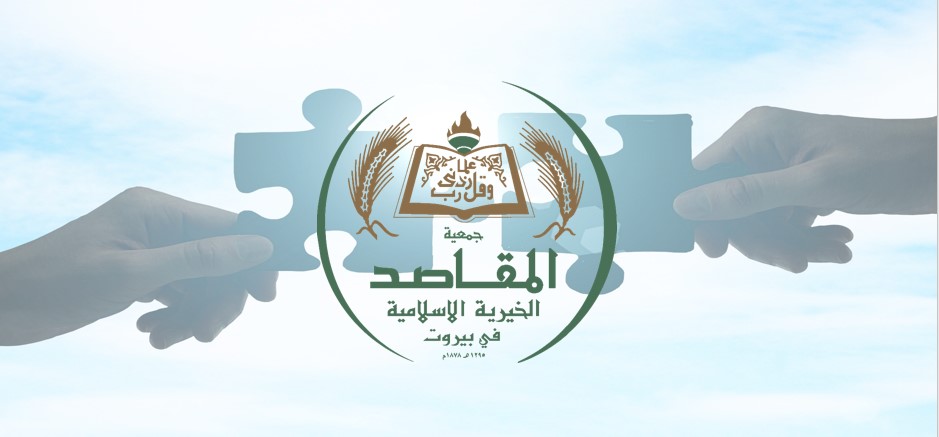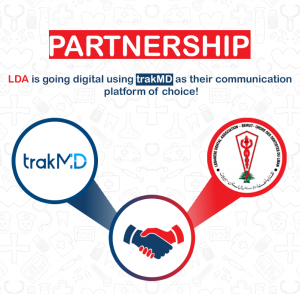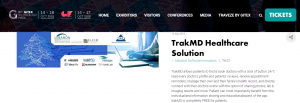Health entrepreneurship in Lebanon Low competition in an emerging market
When it comes to health, Lebanon is one of the leading countries in the Arab world in terms of the quality of healthcare provided and in testing new medical technologies. The country now has the opportunity to lead the way in entrepreneurship via healthcare startups. Executive spoke with entrepreneurs in this field to see what challenges they faced and what obstacles still need to be overcome to find success as a healthcare startup.
According to a 2016 Wamda Capital’s report on health startups, MENA is growing its first generation of health entrepreneurs, which means that the region is witnessing the first business and economic wave of an industry that is likely to expand and unveil a vast range of entrepreneurial opportunities.
Meanwhile, worldwide information technology solutions for healthcare are entering their third wave. As consulting firm McKinsey & Company pointed out in a 2014 paper on the digital future of healthcare, the first two waves of IT brought computation of data and statistics to healthcare institutions in the 1950s and helped with integrating processes among healthcare organizations in the 1970s. Compared with these advancements, the third wave of digitization is seen as having incomparably greater implications, from robotic surgery and remote diagnosis to mobile healthcare via digital apps.
Given the huge social and economic implications of the full digitization of healthcare and wellness, any entrepreneurial ecosystem should be priming itself to nurture startups related to healthcare. This applies in Lebanon as much as anywhere, but local healthcare startups who spoke to Executive report experiencing the same frustrations felt by other startups in the Lebanese ecosystem, such as the difficulty of attracting funding and the lack of local talent.
Among local startups, diabetes digital monitor Weglo is still in its first development stage. Spike, a software application that helps and guides diabetes patients with their everyday treatments, and TrakMd, an online platform that helps patients find, book, and review doctors around Lebanon, have already progressed beyond the launch phase and are currently operating in a full commercial form.
While the entrepreneurs that spoke to Executive cite similar difficulties to those encountered by emerging healthcare startups worldwide, they also raised issues unique to the Lebanese market, and opined that the economic situation in Lebanon negatively affects startups due to the dearth of appropriate resources and professionals within the field.
barriers to the big-time
Lack of public reach—becoming recognized and showcasing services to the general public—can be a challenging initial hurdle for startups to conquer. Typically, online outreach has proven to be the most effective method for startup brand advertising. Search Engine Optimization (SEO)—the process of maximizing visitors to a website by ensuring it appears high in the list of search engine results—has reportedly been very effective for some startups, such as Spike, which is now in the process of planning a global app launch. Although SEO has proven effective at increasing a brand’s exposure, others in Lebanon still struggle to make themselves known, which in the long run could affect the profitability and net worth of the organization.
Healthcare startups in Lebanon report facing several obstacles in their early stage development, ranging from the scarcity and high cost of raw materials, and the lack of talent in the Lebanese market, to issues with funding. Given that the healthcare industry requires in-depth research by professionals in an area where the cost of mistakes is high, finding the appropriate staff and tools can be a very difficult challenge. According to Spike founder Ziad Alame, the lack of motivation in the workforce is holding back the healthcare startup industry in Lebanon. “There’s a mentality in Lebanon where people don’t really want to work, they just want to have a job where they go sit behind the desk and wait for the day to end,” Alame says. “[Employees] are selling their time without putting in the effort, which is one of the reasons why we are not seeing startups coming out of Lebanon that are really good.”
Another major issue is that of funding. While this barrier is faced by startups in all sectors, healthcare startups require relatively large amounts of funding in order to succeed. All the entrepreneurs interviewed by Executive agreed that obtaining funds in Lebanon is one of the most difficult tasks, due mainly to the low risk mentality of investors.
Spike reports obtaining an estimated $150,000 from different venture capital (VC) funds such as ZOUK, Kafalat, SeatBoost, and MIT, while Weglo and TrakMD say that the VC road was more difficult for them and instead they had to self-fund their ventures. “I started self-funding, first using my money to pay for people and acquiring parts for prototyping,” says Abed el-Rahman el-Kaderi, co-founder of Weglo. Both Welgo and TrakMD say that the lack of local CV funding resulted in delays in developing their concepts and presenting their services.
In their 2016 report, Wamda Capital notes that health startups in MENA region often rely on more informal sources of financing—personal funds, family money, friends’ money, and grants—over any other funding sources, especially for early-stage capital.
After clearing development and funding hurdles, healthcare startups still face challenges related to their legal status within the wider healthcare sector, its potential client pool, and ensuring user privacy. “Legal credibility is a big challenge for startups since formal institutions are set within the traditional healthcare infrastructure,” according to Kevin Shoucair, business support manager at local accelerator Speed. Having a large portion of the population in poverty also makes it more difficult for startups to target clients with the means to use their products and realize their full potential. “Health startups also have a great cost coming from establishing security systems, which will ensure the user’s privacy and access,” Shoucair adds.
Local entrepreneurs also cite positive aspects of the current healthcare startup ecosystem, including low competition and non-saturation of the market. According to Alameh and Kaderi, since the healthcare startup market in Lebanon is still in its early stages, this makes it easier for new companies to break out and become noticed. “The only advantage we have in Lebanon is that it is easier for us to get recognized in the sector, as there are not a lot of competitors,” Kaderi argues.
While the future is unpredictable in a country as volatile as Lebanon, each of the healthcare startups Executive interviewed agreed that much depends on the approach adopted by the startup. Funding and marketing are not enough to guarantee the success of a healthcare startup: Ethics also play a major role. In this regard, mistakes cannot be made, as their effects will impact directly on the wellbeing of consumers. As a result, the research done into emerging healthcare startups needs to be extremely accurate and undertaken by experts in the field to avoid harmful consequences for the health of citizens.
To better understand how investors and funds make their decisions, Executive also spoke with funds and accelerators that previously invested in the healthcare ecosystem.
Helping hand
There is clear growth in the Lebanese startup market, with the sector thriving ever since Banque Du Liban launched Circular 331 in 2014, which provides support for emerging startups, private equity firms, and accelerators. To further expand the viability of the startup ecosystem, the Lebanese Venture Capital and Private Equity Association (LVCPEA) was launched at the start of 2018 with around $360 million in funding to dole out. Including major players like Berytech, Leap Ventures, and Middle East Venture Partners (MEVP), the core mission of the association is to help investors effectively engage in the creation of information and communication technology in Lebanon.
Based on the portfolio descriptions of Lebanese VC firms, on average, two health startups are invested in per fund, with most being software-based startups such as Spike, the application for diabetes assistance, and AlTibbi, a platform for healthcare-related knowledge. There is not a specific budget set for healthcare startups, which are sometimes included as a tech investment or software investment.
With most VCs prefering to invest in software-based startups, it is a real challenge for hardware-based startups to grow in Lebanon, especially if they require R&D investment. “There is a low to zero R&D environment, so there’s little homegrown innovation taking place which can be spun off into startups,” says Fadi Bizri, partner at B&Y venture partners, a VC fund for technology startups in the MENA region.
Given the great human capital residing in Lebanon, the potential for the healthcare sector is promising. According to research carried out by MEVP, an estimated $450 million per year is spent on general doctor consultations in the MENA region. Currently, the private healthcare market size in the GCC is around $62 billion, and is estimated to grow 8.7 percent per year to reach $94 billion in 2021, according to MENA Research Partners (MRP), a leading research company in the region. There are indeed, big investment opportunities in the entrepreneurial health sector, given the mentality shift from curative to preventive healthcare among an increasingly health conscious and tech savvy population.
“With current infrastructure adopting new innovative technological trends, healthcare startups will see greater adoption in Lebanon. [These technologies] will also be more accepted by the government, regulatory bodies, and eventually the country’s biggest hospitals,” says Walid Mansour, a managing partner at MEVP.
The challenges and drawbacks facing healthcare startups are severe, with the most common and recurrent challenge being funding, especially for non-software based startups that require heavy capital in order to build their prototypes. However, low competition works in the sector’s favor, allowing emerging startups to grow and be noticed in the Lebanese market. The future of the sector depends on how entrepreneurs, funds, the government, and the market act and react—in particular to address the challenges detailed above. In the meantime, Lebanon should support and embrace the development of a healthcare entrepreneurial ecosystem and work toward improving it for the sake of a healthy economy and a healthy populace.
Source: http://www.executive-magazine.com/special-report/health-entrepreneurship-in-lebanon
 When trakMD was launched, it was never about an online appointment booking platform that patients can find and book doctors with, albeit a much needed tool for better accessibility to healthcare professionals. The two seasoned experts in the healthcare industry had, in fact, set their sights on building a comprehensive platform that serves as the go-to solution for everything healthcare, be it for patients or healthcare providers.
When trakMD was launched, it was never about an online appointment booking platform that patients can find and book doctors with, albeit a much needed tool for better accessibility to healthcare professionals. The two seasoned experts in the healthcare industry had, in fact, set their sights on building a comprehensive platform that serves as the go-to solution for everything healthcare, be it for patients or healthcare providers. 



